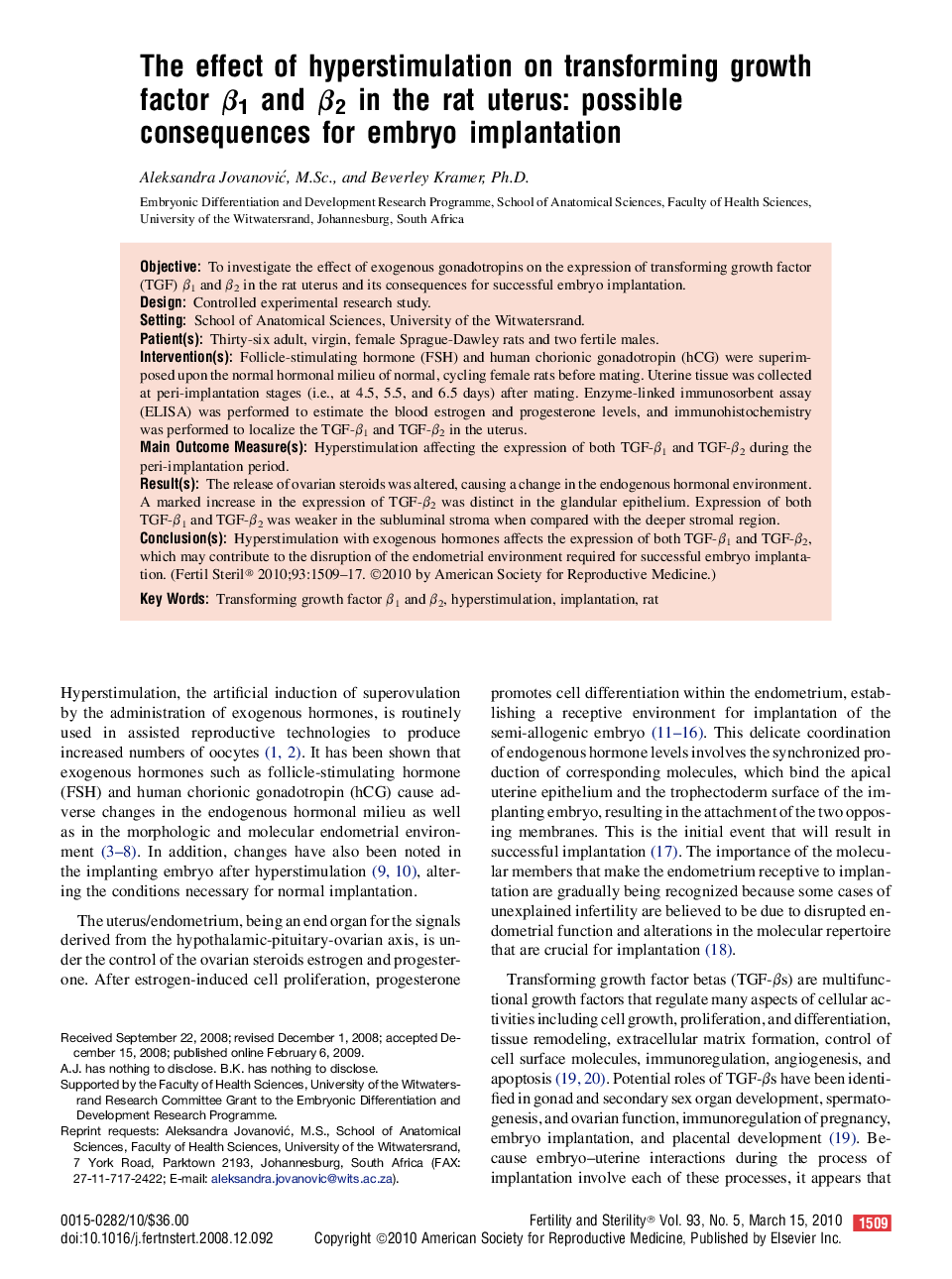| Article ID | Journal | Published Year | Pages | File Type |
|---|---|---|---|---|
| 3938228 | Fertility and Sterility | 2010 | 9 Pages |
ObjectiveTo investigate the effect of exogenous gonadotropins on the expression of transforming growth factor (TGF) β1 and β2 in the rat uterus and its consequences for successful embryo implantation.DesignControlled experimental research study.SettingSchool of Anatomical Sciences, University of the Witwatersrand.Patient(s)Thirty-six adult, virgin, female Sprague-Dawley rats and two fertile males.Intervention(s)Follicle-stimulating hormone (FSH) and human chorionic gonadotropin (hCG) were superimposed upon the normal hormonal milieu of normal, cycling female rats before mating. Uterine tissue was collected at peri-implantation stages (i.e., at 4.5, 5.5, and 6.5 days) after mating. Enzyme-linked immunosorbent assay (ELISA) was performed to estimate the blood estrogen and progesterone levels, and immunohistochemistry was performed to localize the TGF-β1 and TGF-β2 in the uterus.Main Outcome Measure(s)Hyperstimulation affecting the expression of both TGF-β1 and TGF-β2 during the peri-implantation period.Result(s)The release of ovarian steroids was altered, causing a change in the endogenous hormonal environment. A marked increase in the expression of TGF-β2 was distinct in the glandular epithelium. Expression of both TGF-β1 and TGF-β2 was weaker in the subluminal stroma when compared with the deeper stromal region.Conclusion(s)Hyperstimulation with exogenous hormones affects the expression of both TGF-β1 and TGF-β2, which may contribute to the disruption of the endometrial environment required for successful embryo implantation.
